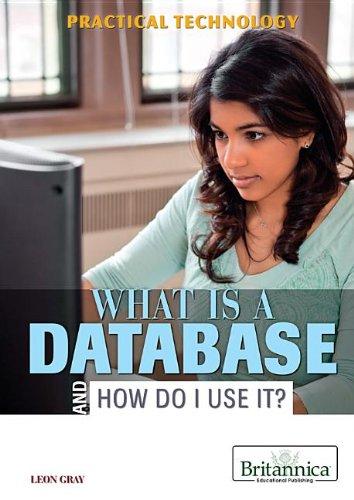Answered step by step
Verified Expert Solution
Question
1 Approved Answer
Python I list all situation ,but..... Could i learn some way easiler and more efficient. esults out of Using the same representation of the Tic-Tac-Toe
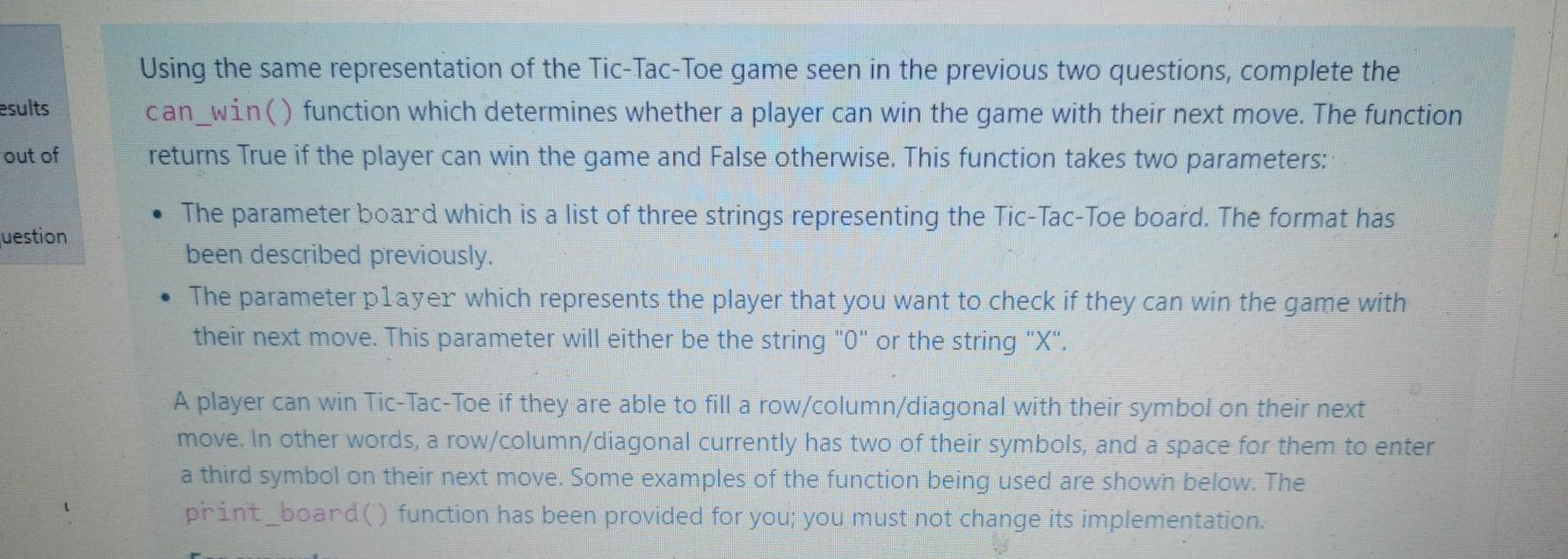
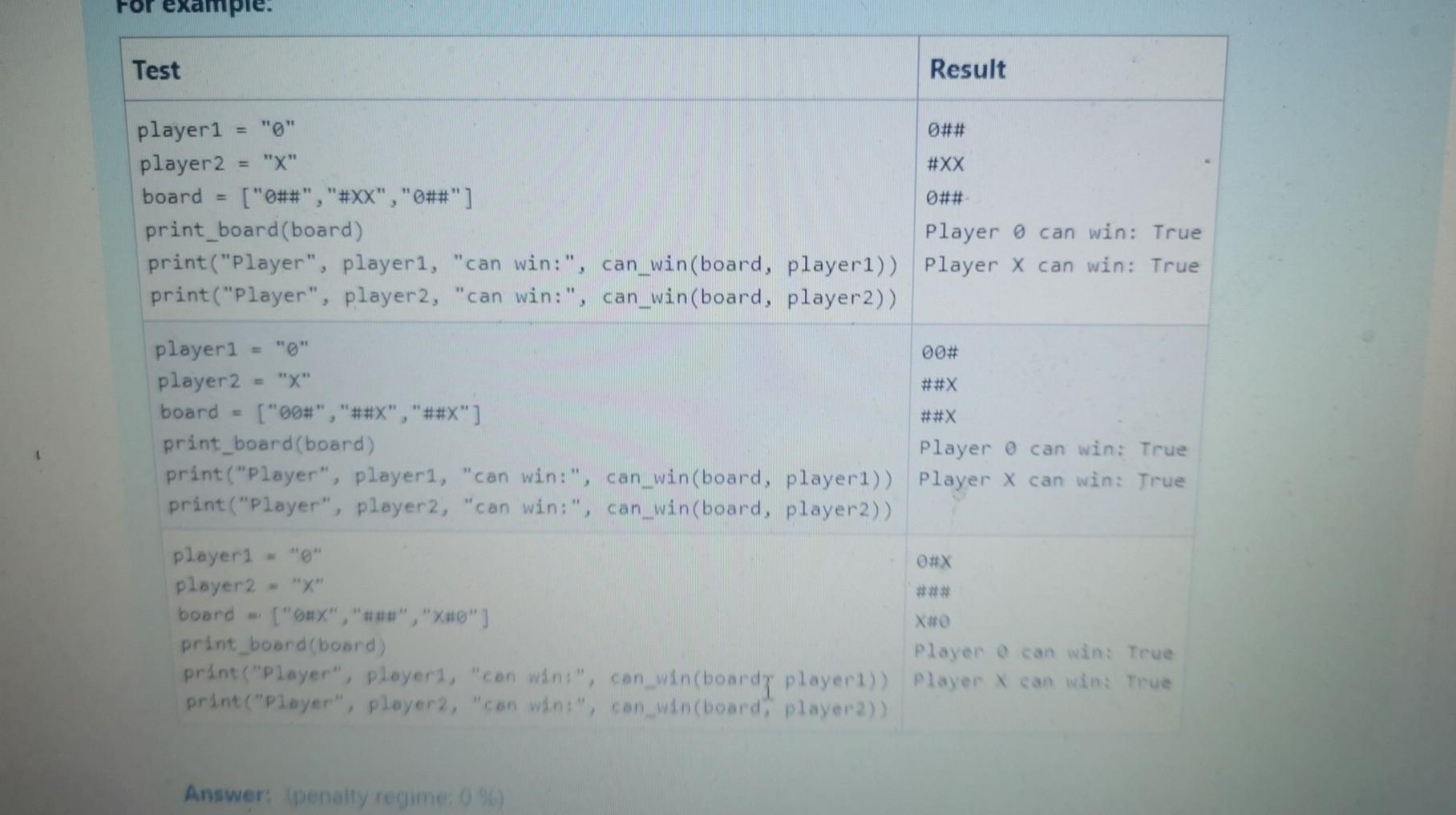
Python I list all situation ,but.....
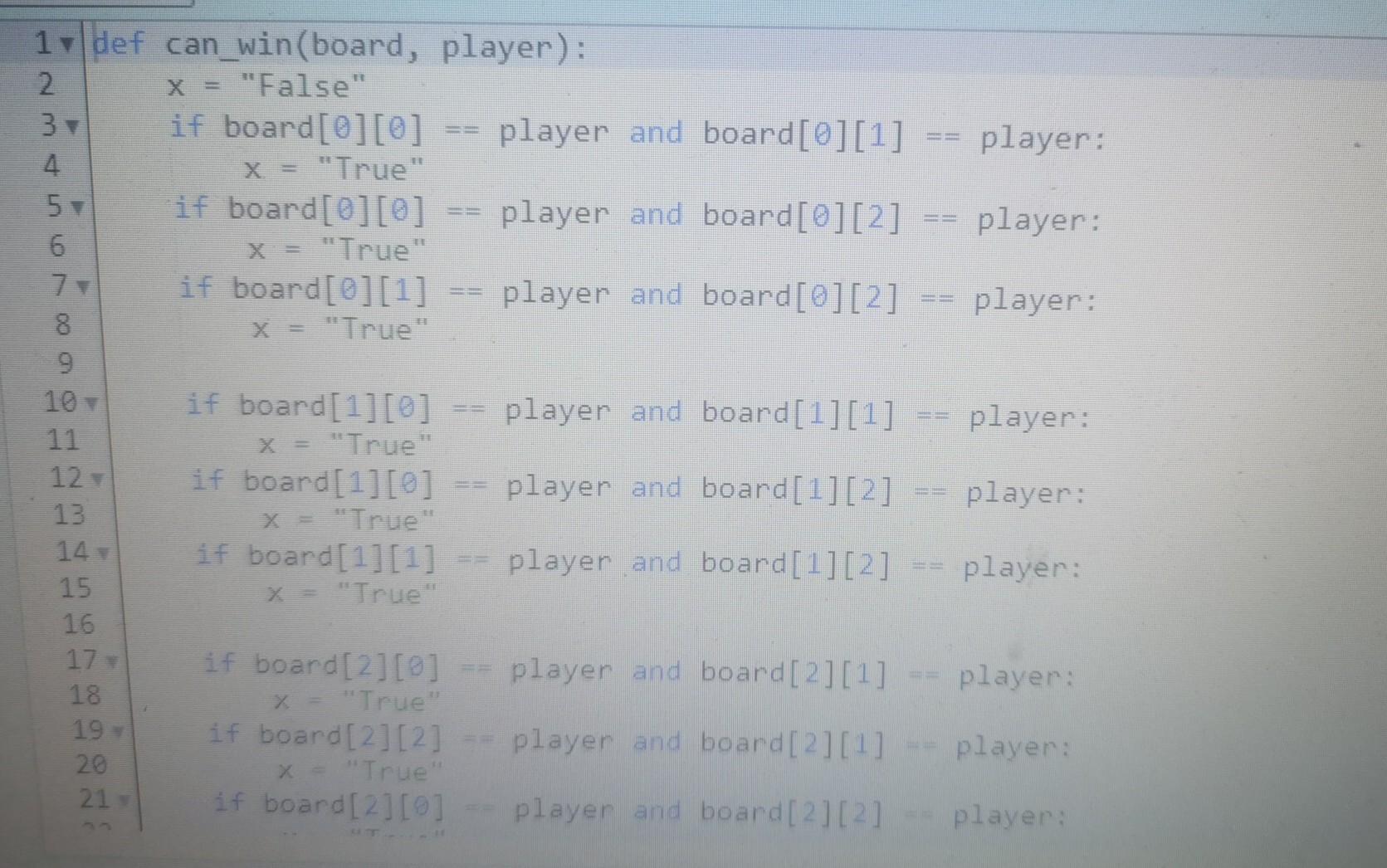
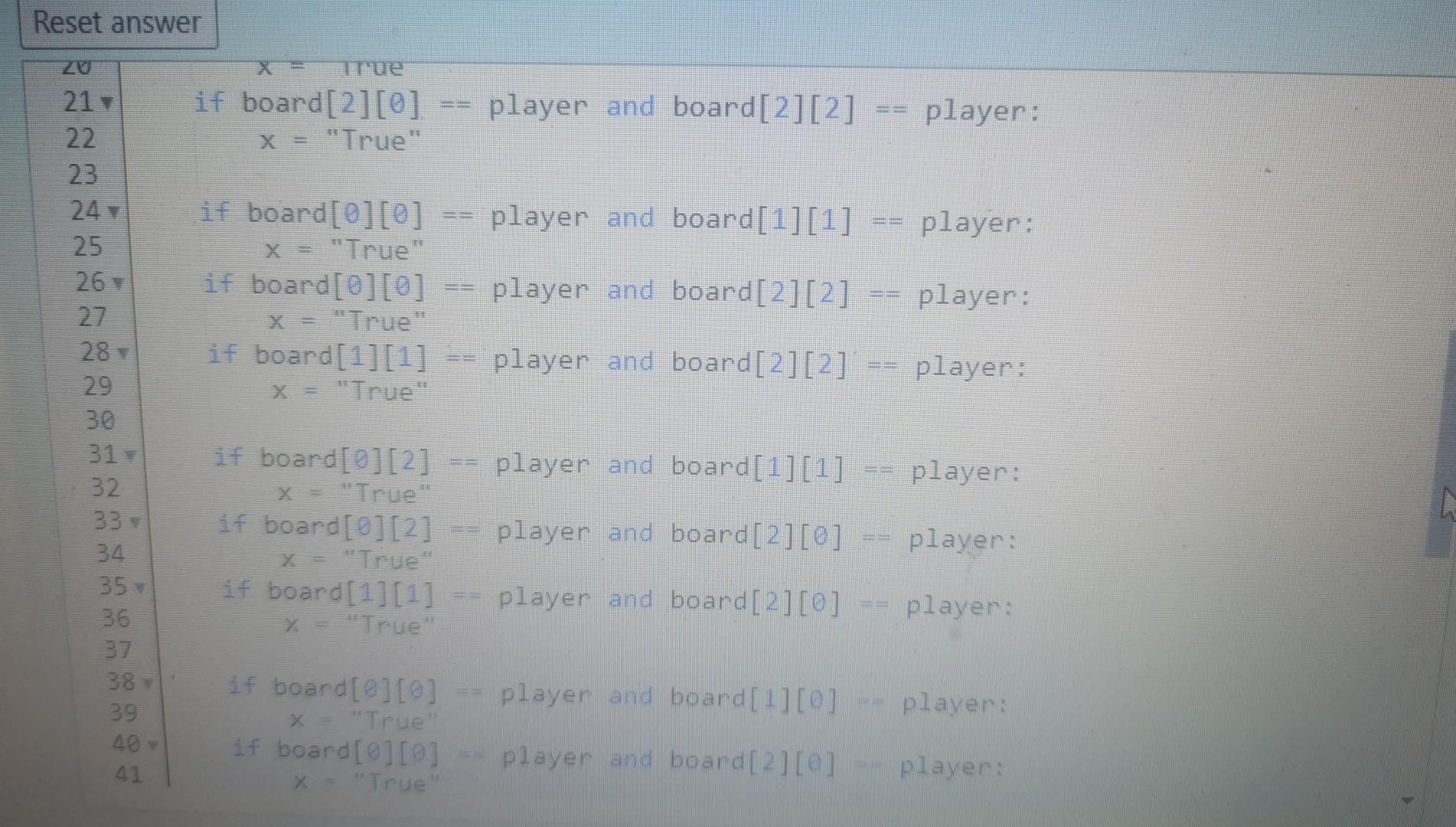
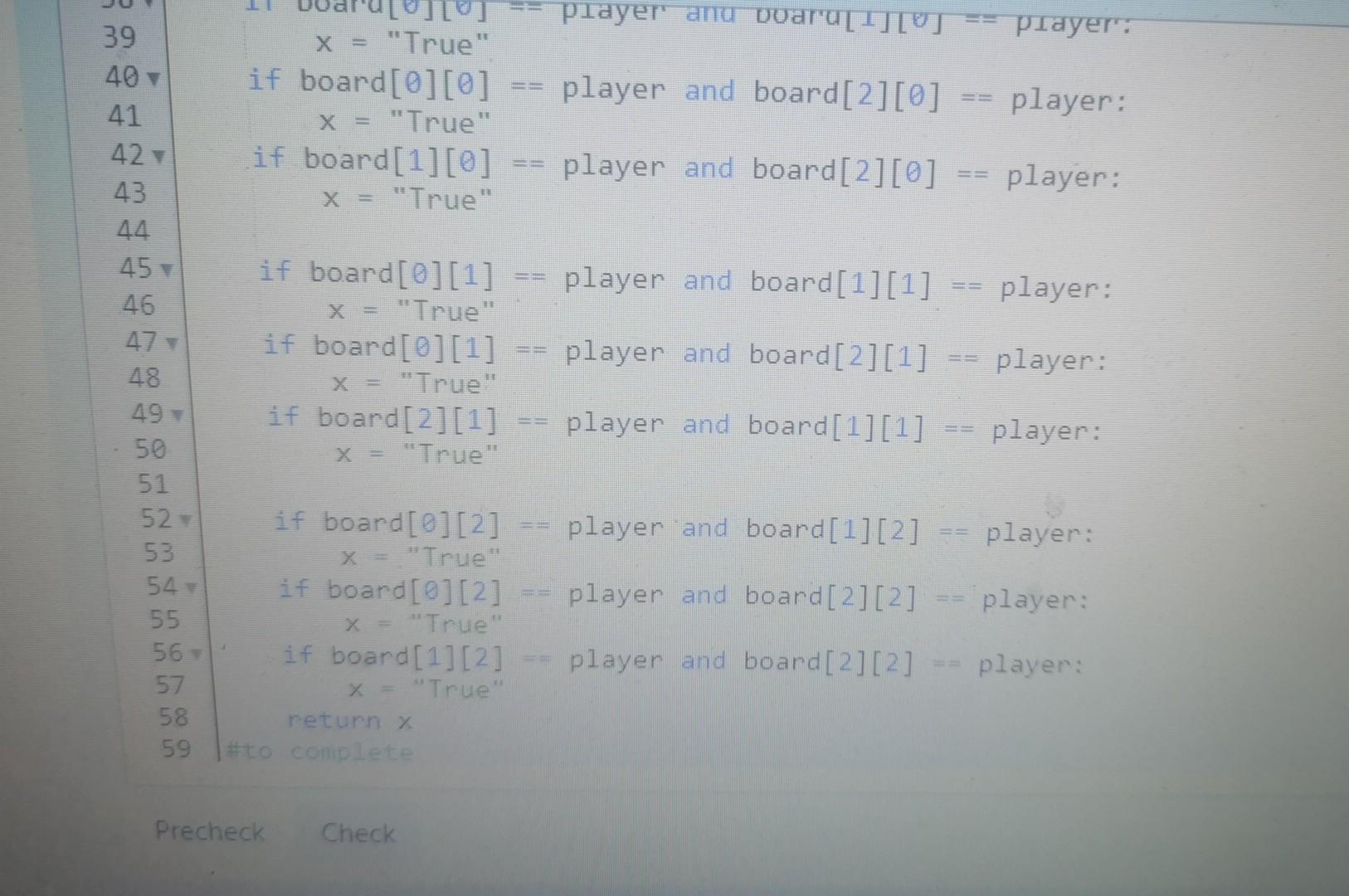
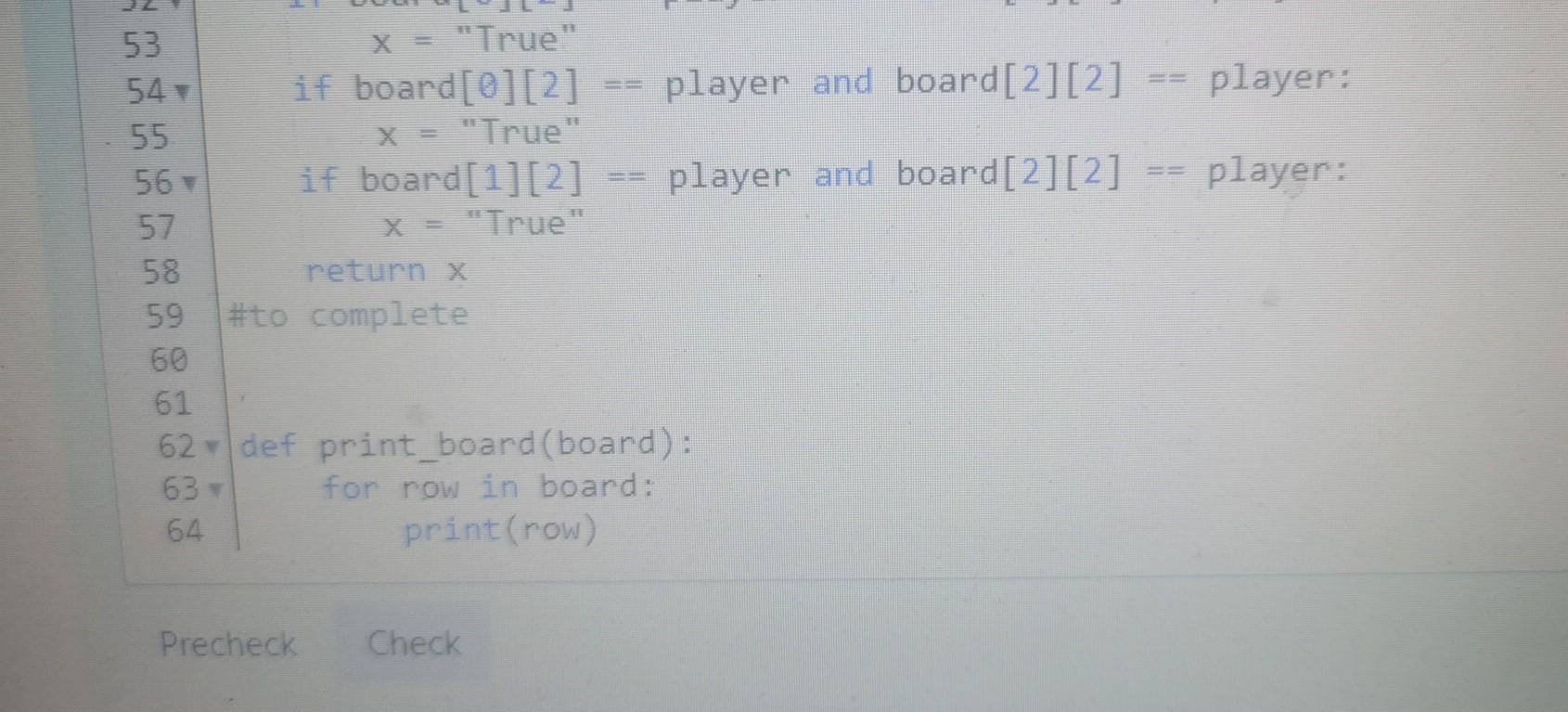
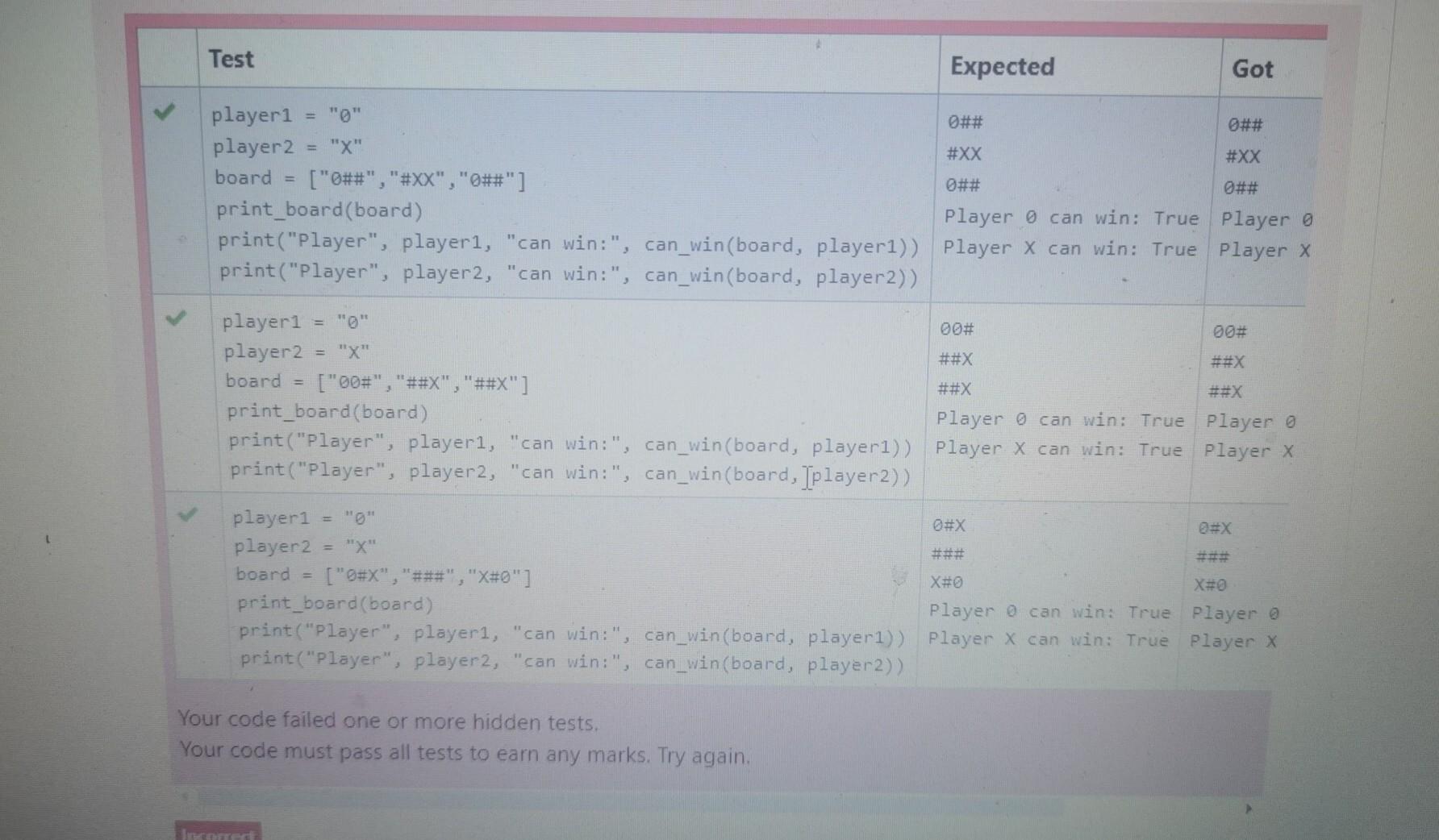
Could i learn some way easiler and more efficient.
esults out of Using the same representation of the Tic-Tac-Toe game seen in the previous two questions, complete the can_win() function which determines whether a player can win the game with their next move. The function returns True if the player can win the game and False otherwise. This function takes two parameters: The parameter board which is a list of three strings representing the Tic-Tac-Toe board. The format has been described previously. The parameter player which represents the player that you want to check if they can win the game with their next move. This parameter will either be the string "0" or the string "X". uestion A player can win Tic-Tac-Toe if they are able to fill a row/column/diagonal with their symbol on their next move. In other words, a row/column/diagonal currently has two of their symbols, and a space for them to enter a third symbol on their next move. Some examples of the function being used are shown below. The print_board() function has been provided for you; you must not change its implementation. For examp Test Result #XX ## player1 ## player2 = "X" board ["@##","#XX", "O##"] print_boardboard) Player o can win: True print("Player", playeri, "can win:", can_win(board, player1)) Player x can win: True print("Player", player2, "can win:", can_win(board, player2)) player1 player2 board = ["#", "##X","##X"] ##X print_board(board) Player can win: True print("Player", player1, "can win:", can win(board, playeri)) Player X can win: True print("Player", player2, "can win:", can_win(board, player2)) #X player1 player2 board ["OuX","a", "X0"] print_board (board) Player o can win: True print("Player" playeri, "can wins", can win boardy player!)) Player x can win True print("Player", player, can win:", can winboard, player2)) Answer: (penalty regime: 0.9) A W N 1 def can_win(board, player): x = "False" 37 if board[0][0] player and board[0][1] 4 X = "True" 5 if board[0][0] player and board[0][2] 6 x = "True" if board[0][1] player and board[@][2] 8 X = "True" player: player: player: player: if board[1][0] == player and board[1][1] X = "True" if board[1][0] == player and board[1][2] x = "True" if board[1][1] player and board [1] [2] X = "True" 127 13 14 15 16 player: player: 1 18 19 20 21 if board[2][0] player and board[2][1] player: X = "True" if board [2][2] -- player and board [2][1] player: X = "True if board[2][%] player and board[2][2] player: Reset answer True 217 if board[2][0] player and board[2][2] player: 22. X = "True" 23 247 if board[0][0] player and board[1][1] player: 25 X = "True" 26 if board[0][0] player and board[2][2] player: 27 X = "True" 28 y if board[1][1] == player and board[2][2] player: 29 x = "True" 30 31 if board[0][2] == player and board[1][1] player: X = "True" 33 if board[0][2] == player and board[2][] player: 34 X = "True" 35 if board[1][1] == player and board[2][0] player: 36 X = "True" 37 38 if board[0][0) player and board[1][0] -- player: 39 X = "True" 40 if board[][] = player and board[2][0] = - player: 41 X = "True 1 prayers: player: - player: player: Prayer' an Doaru[IO] 39 x = "True" 40 if board[0][0] player and board[2][0] 41 x = "True" 427 if board[1][0] player and board[2][0] 43 X = "True" 44 457 if board[0][1] == player and board [1][1] 46 x = "True" if board[0][1] player and board[2][1] 48 X = "True" 49 - if board[2][1] player and board[1][1] 50 x = "True" 51 52 if board[0][2] player and board[1][2] 53 X = "True" 54 if board[0][2] player and board[2][2] 55 X = "True 56 if board[1][2] player and board[2][2] 57 x = "True" 58 return x 59 #to complete player: : player: player: nnnnnnn in in C00 player: player: Precheck Check player: player: 53 X = "True" 547 if board[@][2] player and board[2][2] 55 X = "True" 56 if board[1][2] player and board[2][2] 57 X = "True" 58 return X 59 #to complete 60 61 62 def print_board (board): 63 for row in board: 64 print (row Precheck Check Test Expected Got player1 ## player2 = "X" #XX #XX board = ["O##", "#XX", "O##"] O## @## print_board(board) Player o can win: True Player 0 print("Player", player1, "can win:", can_win (board, player1)) Player x can win: True Player X print("player", player2, "can win:", can_win(board, player2)) player1 0# player2 = "X" ##X board = ["00#", "##X" *##X"] ##X print_board(board) Player can win: True Player 0 print("Player", player1, "can win:", can_win (board, player1)) Player x can win: True Player x print("Player", player2, "can win:", can_win (board, Iplayer2)) player1 = "0" #X player2 = "X" board = ["O#X","***", "X#0"] X#0 print_board(board) Player o can win: True Player print("player", player1, "can win:", can_win (board, player1)) Player x can win: True Player X print("Player", player2, "can win:", can_win(board, player2)) ### Your code failed one or more hidden tests. Your code must pass all tests to earn any marks. Try again. JEStep by Step Solution
There are 3 Steps involved in it
Step: 1

Get Instant Access to Expert-Tailored Solutions
See step-by-step solutions with expert insights and AI powered tools for academic success
Step: 2

Step: 3

Ace Your Homework with AI
Get the answers you need in no time with our AI-driven, step-by-step assistance
Get Started


